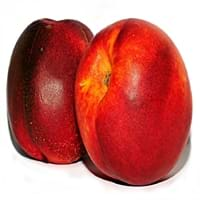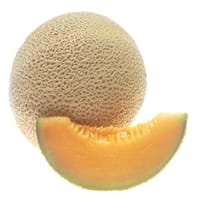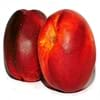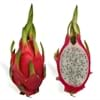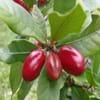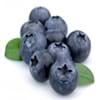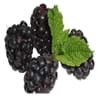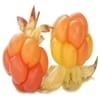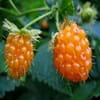Health Benefits
Cancer prevention, Heart care
Cancer prevention, Heart care, Improves eye vision, Prevents diabetes, Reduces stress
General Benefits
Anti oxidant properties, Boosts immune system, Digestive aid, Eye care, Helps in weight loss, Maintains healthy cholesterol level
Boosts immune system, Cures cough, Cures fever, Digestive aid, Eye care, Helps in weight loss
Skin Benefits
Anti-aging benefits, Reduces wrinkles, Skin rejuvenation
Anti-aging benefits, Hydrates skin, Skin rejuvenation, Treatment of skin diseases
Hair Benefits
Protects hair
Good conditioner, Prevents hair loss, Protects hair
Allergy Symptoms
Anaphylaxis, Asthma, Breathing difficulty, Diarrhea, Hives, Itching, Itchy eyes, Skin rash, Sneezing, Swelling of mouth, tongue or lips, Tingling sensation in mouth, Vomiting, Watery eyes, Wheezing
Abdominal pains, Anaphylaxis, Breathing difficulty, Diarrhea, Dizziness, Hives, Itching of mouth, Nasal congestion, Nausea, Vomiting
Side Effects
Allergic reaction, Headache, Nausea
Allergic reaction, Bloating, Indigestion
Best Time to Eat
Best if taken as a breakfast (or empty stomach), As a snack in the late afternoon, Eat the fresh ones, avoid mixing with any other foods, don't eat after meal., Morning time (before lunch)
As a snack in the late afternoon, Don't consume at night and before bed, Eat the fresh ones, avoid mixing with any other foods, don't eat after meal., Morning time (before lunch)
Vitamin B5 (Pantothenic Acid)
Vitamin C (Ascorbic Acid)
Vitamin K (Phyllochinone)
Phytosterol
Not Available
Calories in Fresh Fruit with Peel
Not Available
Calories in Fresh Fruit without Peel
Not Available
Calories in Frozen Form
Not Available
Calories in Canned Form
Not Available
Not Available
Season
Autumn, Summer
Summer
Varieties
Arctic Jay, Artic Rose, Artic Star, Armking, Desert Dawn, Fairlane, Fantasia, Silver Lode, Snow Queen, Stanwick and Stark Sunglo
Hales Best Jumbo, Sweet 'N Early Hybrid, Hearts of Gold, Ambrosia, Athena, Honey Bun Hybrid, Fastbreak and Superstar
Color
Orange, Pink, Red, Yellow
Orange
Inside Color
Yellow
Creamy Orange
Taste
Sweet
Juicy, Musky, Sweet
Origin
China
Africa, India
Soil Type
Sandy loam
Sandy
Climatic Conditions
Sunny, Warm
Dry, Hot
Facts about
- The name ‘nectarine’ is with reference to the sweet food the gods eat, ‘nectar’.
- Nectarines are sometimes called ‘shaved peaches’ because their skin is smooth with no fuzz.
- Cantaloupe is known as rock-melon in some parts of the world.
- Christopher columbus first introduced cantaloupes to north america in 1494.
- The name 'Cantaloupe' as it is cultivated in papal gardens of cantaloupes, Italy.
Spirits
Not Available
Yes
Other Countries
Argentina, Chile, Egypt, Greece, Iran, Italy, Spain, Turkey, United States of America
Iran, Romania, Turkey, United States of America
Top Importer
Germany
United States of America
Botanical Name
Prunus persica
Cucumis melo var. cantalupensis
Synonym
Not Available
Cucumis melo var. reticulatus
Subkingdom
Tracheobionta
Tracheobionta
Division
Magnoliophyta
Magnoliophyta
Class
Magnoliopsida
Magnoliopsida
Subclass
Rosidae
Dillenhidae
Order
Rosales
Cucurbitales
Family
Rosaceae
Cucurbitaceae
Species
P. persica
C. melo
Difference Between Nectarine and Cantaloupe
We might think that Nectarine and Cantaloupe are similar with respect to nutritional value and health benefits. But the nutrient content of both fruits is different. Nectarine and Cantaloupe Facts such as their taste, shape, color, and size are also distinct. The difference between Nectarine and Cantaloupe is explained here.
The amount of calories in 100 gm of fresh Nectarine and Cantaloupe with peel is 44.00 kcal and Not Available and the amount of calories without peel is Not Available and 34.00 kcal respectively. Thus, Nectarine and Cantaloupe belong to Low Calorie Fruits and Low Calorie Fruits category.These fruits might or might not differ with respect to their scientific classification. The order of Nectarine and Cantaloupe is Rosales and Cucurbitales respectively. Nectarine belongs to Rosaceae family and Cantaloupe belongs to Cucurbitaceae family. Nectarine belongs to Prunus genus of P. persica species and Cantaloupe belongs to Cucumis genus of C. melo species. Beings plants, both fruits belong to Plantae Kingdom.
